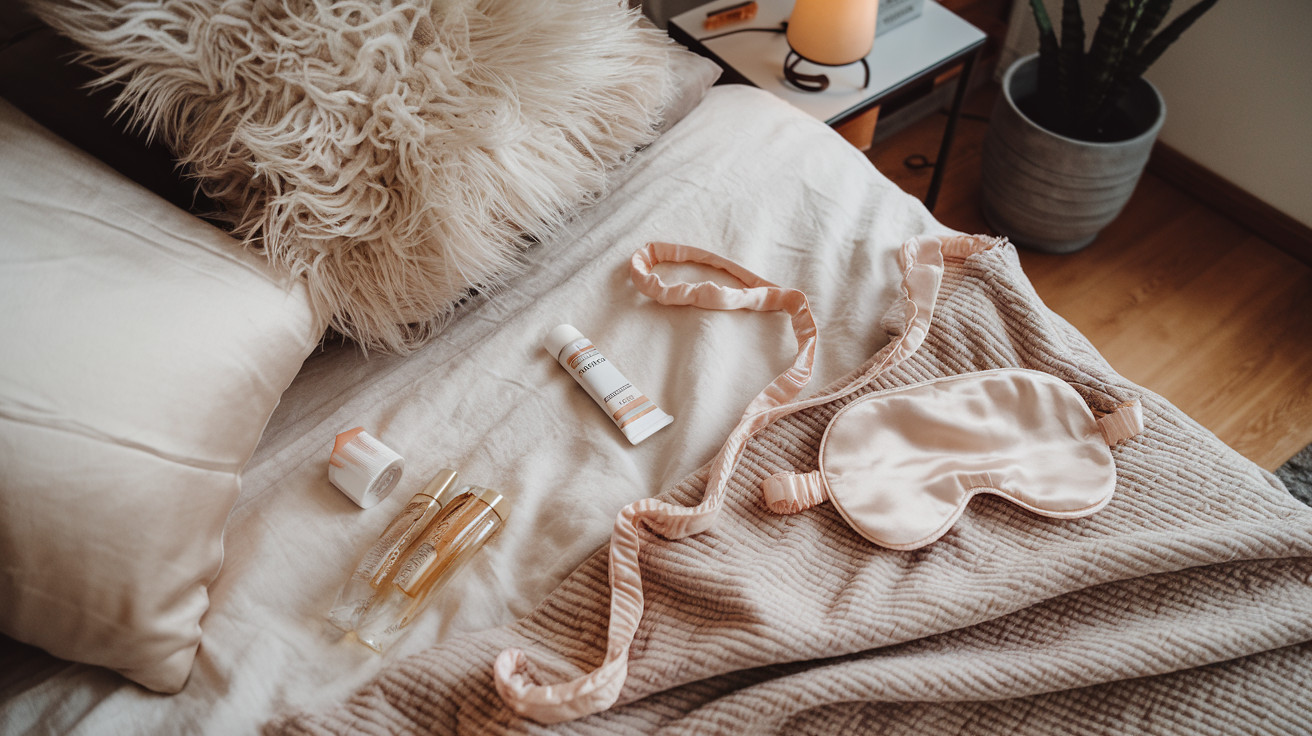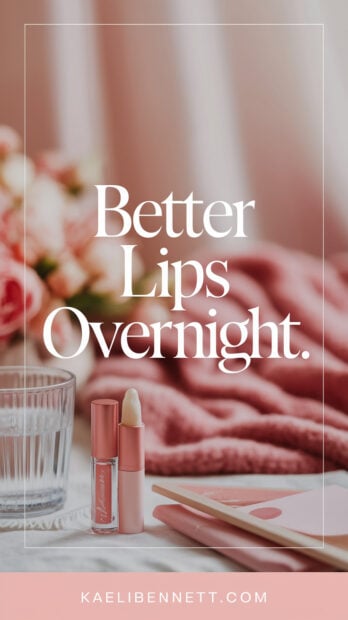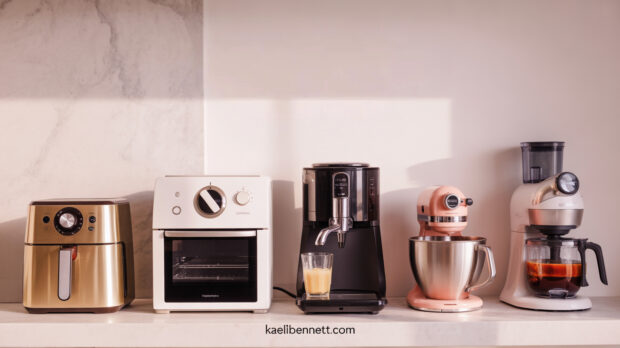 Disclosure:This post may contain affiliate links, meaning if you decide to make a purchase via my links, I may earn a commission at no additional cost to you. See my disclosure for more info.
Disclosure:This post may contain affiliate links, meaning if you decide to make a purchase via my links, I may earn a commission at no additional cost to you. See my disclosure for more info.Understanding Dry Lips
Many individuals, especially women, are keen to discover ways to achieve better lips overnight. Understanding the causes of dry lips and the impact of weather conditions on lip health is vital in maintaining soft and supple lips.
Causes of Dry Lips
Dry lips are often associated with a lack of oil glands on the lips, making them more prone to drying out and becoming chapped. Factors such as weather conditions, dehydration, and habitual licking can exacerbate the issue (Healthline). Dehydration and malnutrition are serious conditions that can contribute to chapped lips, particularly for individuals who are dehydrated or malnourished. Symptoms of dehydration may include low blood pressure, fever, rapid breathing, or rapid heartbeat, while malnutrition symptoms may include vitamin deficiencies, especially in limited diets like vegetarianism or alcohol addiction. Older adults may also be at higher risk of malnutrition due to decreased appetite (Healthline).
Understanding the root causes of dry lips can help individuals address underlying issues and take proactive steps to prevent chapping and discomfort. Proper hydration for lips and ensuring adequate nutrition play key roles in maintaining healthy, plump lips.
Impact of Weather on Lips
Weather conditions play a significant role in the health of our lips. Exposure to harsh weather elements like cold temperatures, dry air, wind, and sun can strip the lips of moisture, leading to dryness and chapping. During colder months, indoor heating systems can also contribute to dry lips by reducing the humidity in the air.
To protect lips from the detrimental effects of the weather, it is essential to invest in nourishing lip care products and practices. Using lip balms with SPF protection can shield lips from UV damage, while incorporating pink and soft lips products containing moisturizing ingredients can help combat dryness. Additionally, considering vitamin deficiency as a potential cause of dry lips, ensuring a balanced diet rich in essential nutrients is crucial for overall lip health.
By understanding the causes of dry lips and the impact of weather conditions, individuals can take proactive measures to care for their lips effectively. Implementing healthy lip care routines and utilizing appropriate lip care products can help maintain smooth, hydrated lips and achieve the desired results of better lips overnight.
Remedies for Dry Lips
When seeking ways to achieve better lips overnight, it’s essential to address the underlying causes of dryness and implement effective remedies. Here, we delve into two key strategies: hydration and lip balms, as well as avoiding irritants that may exacerbate lip dryness.
Hydration and Lip Balms
Dry, chapped lips can be the result of various factors, including cold weather, sun exposure, and habits such as licking the lips, which can further aggravate the condition. To combat dryness effectively, hydration plays a crucial role in maintaining lip health. Regularly drinking water helps keep the body hydrated, which reflects in the condition of the lips.
Lip balms are essential for managing dry lips as they provide much-needed moisture and protection. Opt for lip balms containing hydrating ingredients like shea butter, coconut oil, or hyaluronic acid. Additionally, choosing a lip balm with SPF protection is vital, especially when venturing outdoors to shield your lips from harmful UV rays.
To maintain hydrated and healthy lips, make it a habit to apply lip balm throughout the day, especially before bedtime. This practice ensures that your lips remain moisturized overnight, promoting soft and supple lips in the morning.
Avoiding Irritants
In the quest for perfect lips, it is crucial to steer clear of potential irritants that can worsen lip dryness. Some common irritants found in lip products include fragrances, menthol, camphor, and certain preservatives. These ingredients can strip the lips of their natural moisture, leading to increased dryness and irritation.
When selecting lip care products, opt for formulations that are free from known irritants and allergens. Look for lip balms labeled as hypoallergenic or formulated for sensitive skin. By choosing gentle and non-irritating lip products, you can prevent exacerbating dryness and maintain optimal lip health.
In cases of severe chapped lips, especially when associated with dehydration or vitamin deficiency, seeking medical advice promptly is essential for proper treatment. By following a lip care routine that prioritizes hydration, protection, and avoidance of irritants, you can nurture your lips back to health and achieve the perfect pout you desire.
Lip Care Products
When addressing the quest for better lips overnight, it’s vital to understand the differences between lip masks and lip balms and choose the right products that suit your lip care needs.
Lip Masks vs. Lip Balms
Lip masks and lip balms play distinct roles in lip care routines. Lip masks are designed to deeply replenish hydration, soften the look and feel of the skin, and often give lips a juicy, plumped appearance. They are more intensive and longer-lasting compared to lip balms, working similarly to face masks but specifically targeting the lips. Lip masks usually come in gel forms, making them easier to apply and providing a more luxurious treatment for your lips.
On the other hand, lip balms primarily focus on providing daily hydration and protection for the lips. They are ideal for keeping your lips moisturized throughout the day and protecting them from environmental stressors. Lip balms are often formulated with ingredients like shea butter, almond oil, and vitamin E to nourish and condition the lips, making them an essential part of any lip care routine.
Choosing the Right Lip Products
When selecting lip care products, it’s essential to consider your specific lip concerns and desired outcomes. If you’re looking to enhance hydration, improve the texture of your lips, or achieve a fuller appearance, incorporating a lip mask into your routine can offer significant benefits. The deep hydration provided by lip masks can be especially beneficial for those struggling with dry and chapped lips.
If your focus is on maintaining daily moisture and protecting your lips from external aggressors, a quality lip balm is the key. Look for lip balms that contain nourishing ingredients and offer broad-spectrum sun protection to shield your lips from harmful UV rays.
Integrating both lip masks and lip balms into your lip care regimen can provide a comprehensive approach to keeping your lips healthy and beautiful. Remember, exfoliating your lips before applying lip products can help enhance absorption and maximize the benefits of your lip care routine (Tatcha). For overnight transformative effects, consider applying a thick layer of a nourishing lip mask before bedtime to wake up to softer, more hydrated lips. Makeup artists and dermatologists also recommend using a lip mask as a hydrating base before applying lipstick for a flawless and long-lasting finish.
Homemade Lip Masks
For those looking to enhance their lip care routine and achieve perfect lips overnight, homemade lip masks can be a nourishing and effective solution. These masks offer a luxurious treatment for the lips, providing hydration and nourishment to combat dryness and promote softness. Let’s explore the ingredients and substitutes used in homemade lip masks, as well as a DIY lip mask recipe for rejuvenated lips.
Ingredients and Substitutes
When creating a homemade lip mask, it’s important to select ingredients that are not only nourishing but also suitable for your skin type. The choice of ingredients can vary based on personal preferences and any specific skin sensitivities. Here are some common ingredients and their substitutes for crafting a lip mask:
- Lanolin: Known for its moisturizing properties, lanolin is often found in lip care products for its ability to deeply hydrate the lips. A vegan-friendly substitute for lanolin can be stearic acid and beeswax, such as candelilla wax.
- Beeswax: Beeswax helps to create a protective barrier on the lips, sealing in moisture and preventing dehydration. For a vegan alternative, synthetic beeswax can be used to achieve similar results.
- Oils: Oils like coconut oil, sweet almond oil, or jojoba oil are commonly used in lip masks for their emollient and nourishing properties. These oils help to condition the lips and improve their overall texture.
- Essential Oils: Adding a few drops of essential oils like lavender, peppermint, or rosemary can provide additional benefits such as soothing inflammation and promoting relaxation.
DIY Lip Mask Recipe
Creating your own DIY lip mask is a simple and cost-effective way to pamper your lips at home. Here’s a basic recipe to get you started:
Ingredients:
- 1 teaspoon beeswax (or synthetic beeswax)
- 1 teaspoon lanolin (or substitute with stearic acid and candelilla wax)
- 2 teaspoons coconut oil
- Optional: 2-3 drops of your favorite essential oil
Instructions:
- In a double boiler, melt the beeswax, lanolin, and coconut oil together until fully combined.
- Remove from heat and add any essential oils if desired. Stir well.
- Pour the mixture into a small container or lip balm tube and allow it to cool and solidify.
- Once solidified, apply a generous amount of the lip mask to your lips before bedtime for overnight hydration.
- Wake up to healthy, pink, and soft lips in the morning.
This lip mask formulation is 100% oil-based, eliminating the need for a broad-spectrum preservative as oils do not support microbial growth (Humblebee & Me). Remember to perform a patch test before applying any new ingredients to ensure they are suitable for your skin. Incorporating this DIY lip mask into your hydration routine for lips can help you achieve smoother and more moisturized lips overnight.
Allergic Reactions to Lip Products
Allergic reactions to lip products can lead to discomfort and irritation, particularly for individuals seeking perfect lips treatment. Understanding the common triggers of allergic contact dermatitis and how to avoid such reactions is crucial in maintaining healthy lips.
Triggers of Allergic Contact Dermatitis
Certain lip balms and chapsticks, including popular brands like Burt’s Bees, Eos, Blistex, and Carmex, may contain allergens that can cause allergic reactions on the lips. These reactions, known as allergic contact dermatitis (ACD) or allergic contact cheilitis, are often triggered by additives such as fragrance and flavorings (Dr. Katta). Labels may not explicitly list all components, making it challenging for consumers to identify potential allergens.
Fragrance and flavoring additives are among the primary culprits of allergic contact dermatitis in lip products. The term “fragrance” on product labels can encompass numerous individual fragrance additives, both natural and synthetic, which have the potential to cause adverse reactions. Similarly, undisclosed flavorings used in products like lip balms and chapsticks can also lead to allergic responses due to their composition.
In addition to fragrance and flavoring additives, moisturizing ingredients like lanolin, chemical sunscreens, and preservatives such as formaldehyde and methylisothiazolinone, commonly found in lip glosses and lipsticks, can also act as triggers for allergic reactions in sensitive individuals (Dr. Katta).
Avoiding Allergic Reactions
To minimize the risk of allergic contact dermatitis from lip products, individuals with dry, chapped lips should opt for alternatives that are less likely to trigger reactions. Recommendations include using pure Vaseline petroleum jelly, Vanicream Ointment, Cleure lip balm with shea butter, 100% coconut oil, and 100% shea butter while steering clear of common chapsticks like Burt’s Bees, Blistex, Carmex, EOS, and others, as well as products containing flavorings and fragrances. Substituting toothpaste and other lip-related items with hypoallergenic alternatives can further reduce the likelihood of allergic responses (Dr. Katta).
By being aware of potential triggers and making informed choices about lip products, individuals can maintain pink and soft lips without the discomfort of allergic reactions. Prioritizing products that suit individual sensitivities and excluding common allergens can promote hydration for lips while minimizing the risk of adverse skin responses.

Lip Care Practices
Achieving perfect lips requires dedicated lip care practices, which involve both prepping your lips and following a night-time lip care routine.
Prepping Your Lips
Lips lack oil glands like other parts of the skin, making them more prone to dryness and chapping. To prevent worsening of dry lips, it’s important to maintain adequate moisture. Avoid habitual lip licking, as it can strip the lips of moisture, leading to increased dryness. Factors like weather conditions and lack of self-care can exacerbate dry lips. To enhance hydration, consider the following prepping tips:
- Stay Hydrated: Drink plenty of water throughout the day to keep your lips hydrated from within.
- Use a Humidifier: In dry environments, using a humidifier can help maintain moisture levels.
- Avoid Allergens and Irritants: Be mindful of products or substances that may trigger allergic reactions or dryness.
- Exfoliate Gently: A gentle lip scrub or soft washcloth can be used to exfoliate your lips, allowing them to absorb moisture more effectively.
- Apply Lip Balm: Regularly applying a nourishing lip balm with SPF 15 or higher can shield your lips from the sun’s damaging effects and provide essential hydration.
Night-Time Lip Care Routine
For optimal lip hydration, incorporating a night-time lip care routine can work wonders. Applying an overnight lip mask before bedtime is a recommended practice by makeup artists and dermatologists. An overnight lip mask forms a protective barrier, providing reparative effects and ensuring that your lips remain soft and moisturized while you sleep. This process allows the active ingredients of the lip mask to penetrate deeply, facilitating the restoration of moisture levels and promoting soft, supple lips by morning.
In addition to the reparative benefits, using a lip mask before applying makeup can serve as a base for flawless lipstick application. It ensures that your lips are well-hydrated, resulting in smoother and more even lipstick application throughout the day. Lip masks can be a game-changer for maintaining pink and soft lips and combating dryness, especially during cold, dry weather or when experiencing vitamin deficiencies that can lead to dry lips (vitamin deficiency dry lips).
Lip balms are also essential in providing hydration, restoring dry skin, sealing in moisture, and preventing evaporation. Look for lip balms containing ingredients like beeswax, known for their emollient properties that effectively protect lips from dryness and environmental factors.
By incorporating these lip care practices into your daily routine, you can effectively nourish and protect your lips, ensuring they stay healthy, hydrated, and flawless.

























